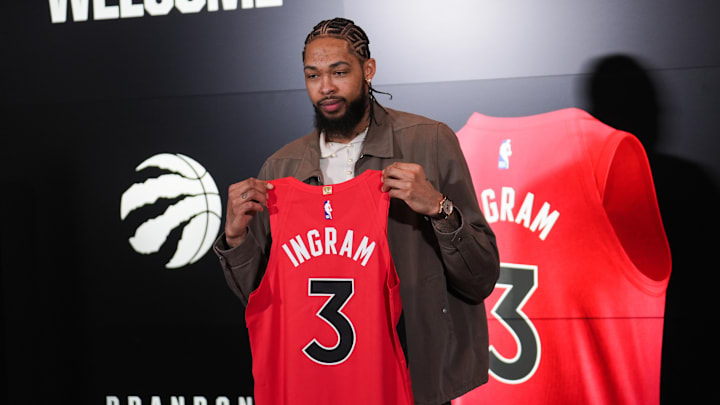There's a lot that goes into building a champion roster in the NBA. There are also multiple ways that an organization can end up assembling a team worthy of hoisting the Larry O'Brien. The New Orleans Pelicans are still trying to find their method for success.
There are NBA champions that reached the pinnacle through the draft. The Denver Nuggets won it all in 2022 behind the strength of their homegrown stars, Nikola Jokic, Jamal Murray, and Michael Porter Jr. Some title teams build their rosters through trade and free agency, such as the 2020 Los Angeles Lakers, whose acquisitions of LeBron James and Anthony Davis paid off perfectly. Some finalists are a mix of drafted stars and mercenaries, like the Kevin Durant-era Golden State Warriors.
One common thread that runs through all of those championship rosters and every other title team in NBA history is luck. The Nuggets struck gold when they selected Jokic in the second round of the 2014 draft. The Lakers happened to be LeBron's team of choice after he grew tired of the Cleveland Cavaliers for the second time, and he ultimately convinced Davis to join him in LA. The Warriors were able to form one of the most dominant rosters in NBA history thanks to a historically gratuitous spike in the salary cap.
The Pelicans haven't figured out their exact plan yet, but it hasn't been due to a lack of effort. They have a nice collection of homegrown talent in Zion Williamson, Trey Murphy III, Herb Jones, and their other young prospects. They've also tried to acquire other players they hoped would get them over the hump like Brandon Ingram, CJ McCollum, and Dejounte Murray. Clearly, New Orleans hasn't gotten lucky enough in their roster building yet, but they did recently encounter a stroke of fortune that bodes well for the future moving forward.
The Pelicans lucked out with the Brandon Ingram situation
After years of shortcomings, the New Orleans Pelicans finally cut ties with Brandon Ingram this past trade deadline, sending him to the Toronto Raptors in exchange for Bruce Brown Jr., Kelly Olynyk, a 2026 top-four protected first-round pick, and a future second-rounder. This deal was ultimately the culmination of the Pelicans' failure to make any meaningful noise in the postseason with their star pairing of BI with Zion, but it was also heavily fueled by the team's contract disputes with Ingram and his camp.
It was reported that Ingram was originally seeking a four-year, $200 million extension that the Pelicans were unwilling to ink, for good reason. His camp was unable to find a middle ground with New Orleans this past summer, which made it clear that his time as a Pelican was coming to an end.
In the end, Ingram wound up reupping for another three years for a total of $120 million with the Raptors, inking that extension less than a week after he was traded to Toronto. It seems like he was ultimately able to find a deal that he was happy with, but it was well short of the $200 million commitment he was seeking from the Pelicans.
Jake Fischer of The Stein Line reported that New Orleans had at one point offered him a four-year, $160 million extension, the same average annual value that he wound up getting from Toronto. All in all, Ingram's new contract is a good deal for both sides. The Raptors get a borderline All-Star for less than the max while BI landed a handsome short-term contract with flexibility that could allow him to make a lot more money in a couple of years, considering that the last season of his extension is a player option that he could decline in order to sign a more lucrative, long-term deal when the cap has risen again.
However, the biggest winner of the extension has to be the Pelicans. Even though Ingram's new three-year, $120 million contract isn't egregious on either side, New Orleans lucked out as the beneficiary of BI's desire for more. In the end, the Pels were only able to trade him for a two veteran contracts, a single first-round pick, and a second-round selection. They likely would have gotten a lot less for him had he already been signed to a new four-year deal worth $40 million per season. They may not have been able to trade him at all, which would have stuck them with a core pairing that clearly was below championship caliber.
In the end, the Pelicans probably still waited too long to trade Ingram and lost out on value because of that, but at least they were able to get something in return for his expiring contract. Dumping him allowed New Orleans to avoid the awkward position of having to re-sign him to prevent losing an asset for nothing while opening up significant financial and roster flexibility moving forward. Getting a first-round pick and two quality veterans was icing on top of the cake.
